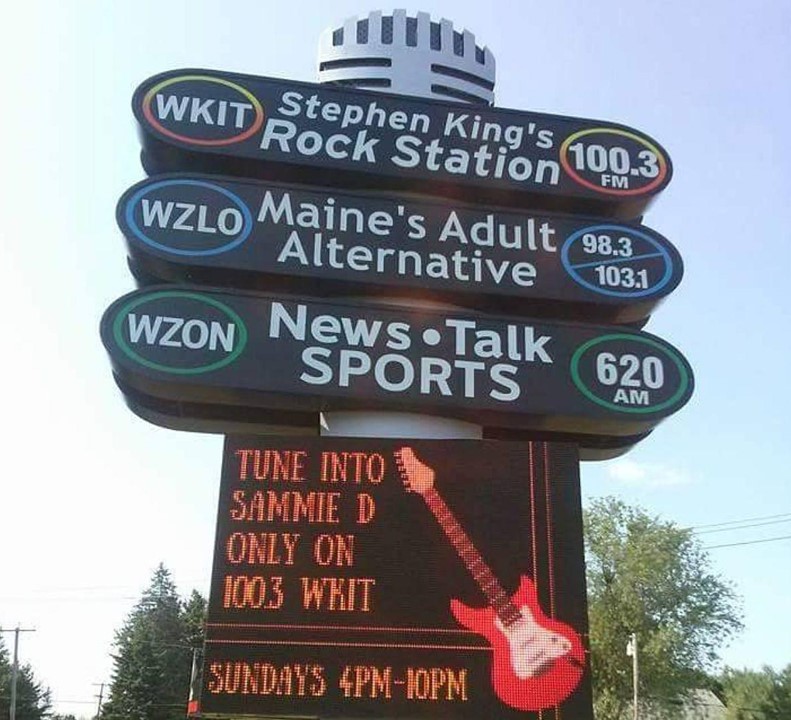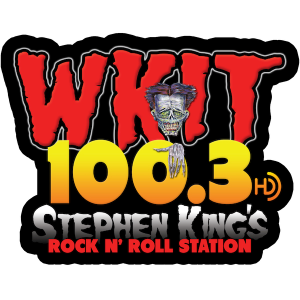
It was less than a month ago when I found myself at the Forecast 2025 Conference in New York City, wondering what I was hearing on stage. The session – “Prospects for Broadcast Media as an Investment in 2025 – The Real Street Talk” – was a session devoted to the financial value of radio and TV stations in the coming year. And the panel’s descriptor asked the key question – and then responded to it:
Q. So, is there still value in transmitters and towers?
A. You may not like everything (the panelists) say, but you need to hear it.”
Sometimes, conference sessions actually live up to the hype. Moderated by Randy Michaels, the session featured three media brokers: Jeff Haley (former RAB CEO), Tom Castro, and Dick Kozacko, and these guys minced no words about lower valuations for broadcast properties in the coming year – and beyond.
Kozacko – in his eighties – and ostensibly the panelist who reaped the biggest rewards of radio and TV stations sales in decades past – reminded today’s attendees that back in the day, Wells Fargo had a division devoted to broadcast transactions.

That ship has sailed, and as covered the next day in Radio + Television Business Report, today’s environment is much less fertile if you’re in the market for a radio station. In fact, Kozacko suggested you’d have better luck cultivating a relationship with a local banker with whom you already have a relationship.
The operative phrase? “Cyclical decline,” according to Haley. And he might as well have said “in the tank.” When asked about today’s multiples – that is, how many times a station’s cash flow today’s radio operations are worth – the audience heard estimates of 5 or 6x. Compare that to the go-go ’80s and ’90s when strong stations were garnering 18 or 20x, and you get a little perspective.
Of course, the lowball estimates might have been music to a certain Maine radio station owner who announced last week his cluster of two FMs and an AM will “go dark” at the end of the year. No 5x here. This well-known owner is handing over the keys at the end of the year “after pouring millions” into the place.
The owner of this truly scary radio mess is none other than America’s preeminent horror author, the great Stephen King. He bought Bangor’s AM 620 WKLZ back in the early ’80s, renaming it “The Zone” after one of his classic horror novels, The Dead Zone. Over the years, King acquired two FMs, WZLO and WKIT.
King broke the news on social media’s Threads:

In a recent New York Times story, King explained his post:
“While radio across the country has been overtaken by giant corporate broadcasting groups, I’ve loved being a local, independent owner all these years.”
Now, full disclosure: I’ve never been to Bangor, I know nothing about the radio market, or King’s stations. But all that said, even in a depressed marketplace for radio stations, walking away seems like an extreme decision.
In a news release, King noted his advancing age (77) combined with the need to “get his business affairs in better order” led to the decisions to shut the cluster down. 
You can almost hear a financial advisor admonishing the author, “Stephen, you have simply got to rid yourself of that money pit radio operation if you want to have a clean portfolio.”
But still….
….these properties are worth nothing?!
This is at a time when we often hear the radio market may be ripe for independent owners if/when the big boys and girls have to divest some of their smaller market operations. But apparently not in this case. The Times article talks about King’s love of rock ‘n roll, easily apparent in his writing. But as we know, music passion doesn’t qualify you to run a business, much less a group of radio stations.
 So, here’s a story about Stephen King’s radio stations that you don’t know – because I’ve never told it. In the early, early days of marketing the Classic Rock format to any owner that would give it a try, I contacted King when he bought The Zone. It was one of those “Hail Mary” letters that you just hope against hope the guy in power actually reads and takes to heart. I don’t have a copy of it, but I recall channeling a number of his books, from Carrie to The Shining.
So, here’s a story about Stephen King’s radio stations that you don’t know – because I’ve never told it. In the early, early days of marketing the Classic Rock format to any owner that would give it a try, I contacted King when he bought The Zone. It was one of those “Hail Mary” letters that you just hope against hope the guy in power actually reads and takes to heart. I don’t have a copy of it, but I recall channeling a number of his books, from Carrie to The Shining.
You know the rest of the story. Crickets.
It’s amazing in many ways King has been a radio owner for more than four decades. Cluster manager Ken Wood leaves us with this disheartening conclusion:
“Independent, locally owned radio stations used to be the norm. There’re only a few left in Maine, and we’re lucky we had these three as long as we did.”
Is that truth or rationalization?
Thanks for the assist, Cameron Coats! – FJ
- What To Do If Your Radio Station Goes Through A Midlife Crisis - April 25, 2025
- A 2020 Lesson?It Could All Be Gone In A Flash - April 24, 2025
- How AI Can Give Radio Personalities More…PERSONALITY - April 23, 2025




How would you like to have been his overnight jock?
Bleeding walls, coffee maker going on and off by itself, guttural voices commanding “Get Ou-u-t…”
I’d have loved it. Good run, Steven.
I’m sure it would have been creepy, especially with the strobing flourescent studio lighting, Alan. Thanks for colorizing the post.
‘I held off the suits as long as I could.’ The most frightening line King has written. As a creative, he gets it. Suits think that artistry and creativity is something you just produce on demand, like a fast food burger.
It IS scary, Paul.
There’s also a secondary issue: The AM station here had a long pre-King history and may have been one of Bangor’s main stations for much of that time.
I suspect that’s true, Eric. Thanks for pointing that out.
It’s disappointing he couldn’t or didn’t find someone who could continue the stations as a local owner. As someone who owned local stations myself at one time and also found a need to sell them for financial reasons, one of my greatest comforts in the sale was knowing the people we sold them to were committed to serving the community and were local. In the end, while the stations didn’t succeed for us, they have gained a new life under the new owners and are still very much a part of their community.
My prediction: He donates the signals to Maine Public. Just a thought…….
A nice thought, that, but Maine Public already has frequencies in Bangor. Still I’d love them to acquire the AM and experiment with MA3.
Interesting. We conducted a research project for Maine Public a few years back. It’s a solid public media operation. although theese days, they’re under the gun, too.
Hello Fred, I’m that ancient media broker you mention in the article but the blood is still flowing well. I looked at information on these stations and have some questions. I am a subscriber to BIA so I have their info. They show a revenue estimate for WKIT, the class B FM, at just under a million dollars. Revenue estimates are not always that reliable. However, in the Nielsen ratings for Bangor in Spring, 2024 WKIT is tied for first in the market with an 11.4 share (tied with Townsquare’s WQCB). Do you turn the license back to the FCC when you have the highest rated station the market? I wouldn’t think so. We have also sold Maine stations last year further north and closer to the Canadian border so there are buyers out there. King must have taken this step for other reasons.
Seems to be the case, Dick. It was great to see and hear from you at Forecast. Thanks for sharing your knowledge that day, and here in my blog. There is undoubtedly more to this story.
Radio Station Licenses are valuable and don’t grow on trees. I understand advancing age, costs for multiple stations in a very small market, and existing competition from TV and other media in Bangor, Maine. But, radio can run on an inexpensive budget and deliver high quality and service. It takes the right place, curation and sponsorship and team. Radio has developed some new, lasting tricks and arrows in the quiver for using new tech, home studios and seasoned pros. Bean counters need to know how to use their beans and protect the people.
You are right, Clark. We don’t know about King’s operating skills (or his staff’s), but there are ways to run stations much more cost-effectively than in the past.
It would almost be worth moving to Bangor to keep those stations alive with local ownership.
Alas, I do not have anything close to the amount of liquid assets to even make a down payment on what they are worth.
Most of us don’t, but I also noted (and a commenter) pointed it out, King’s WKIT was #1 12+ in the last book. The other two may be struggling, but his rock station has an impressive audience.
I have to wonder if the suits haven’t told Stephen that the real estate is worth more than the radio stations. I don’t know the market at all, but shutting it all down and turning in the license seems like a move designed to either shuttle that money elsewhere or take a big write-off on his taxes.
As indicated, there’s always more to the story that what I saw in the New York Times. It is a curious ending to a 40 year story.
Great Post, as always. I just wanted to correct you on the call letters for 620 AM. The station calls at the time of purchase in the early 80s was WACZ. It was owned by a group Acton Communications out of Acton, Mass. Before it was WACZ it was WLBZ. I spent a good 4 years pulling the Mid-6am shift from 81-85 there. Actually, it was my first gig in radio! Great staff and crew. I stil have one of the original Creepshow WZON t-shirts.
Thanks for this. As I pointed out in the post, I don’t know the market so this backsotry is helpful.
So what is the story with the stick value? If it’s not zero then why aren’t the sticks in the hands of a broker today? And if they are zero…well come on, they’re not. This just is so irrational and it makes no sense. Why is there no market for these sticks?
There had to be more to this story. Even if business is absymal, you don’t walk away from radio stations.
Surprising that an ESOP (Employee Stock Option Plan) wasn’t considered. At a minimum, I believe there are positive tax incentives for the owner/seller, it would keep the stations locally owned and the staff employed.
Another good question, Larry. You’d like to think the people working for the Kings would at least like a shot at becoming owners (and not having to start another tedious job search).